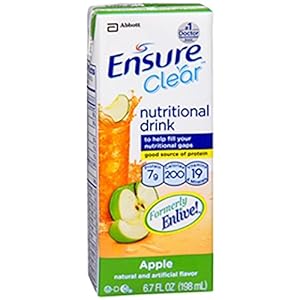Apples are one of the most popular fruits globally, and among the many varieties available, the Honeycrisp apple stands out for its unique flavor and texture. Developed in the 1960s at the University of Minnesota, Honeycrisp apples have gained a reputation for their crispness and sweetness. However, beyond their delightful taste, Honeycrisp apples offer numerous nutritional benefits that make them an excellent choice for health-conscious individuals. In this article, we will explore the nutritional profile of Honeycrisp apples, their health benefits, and how they can fit into a balanced diet.
The Nutritional Profile of Honeycrisp Apples

Honeycrisp apples are not only delicious but also packed with essential nutrients. Here’s a breakdown of their nutritional profile based on a medium-sized apple (approximately 182 grams):
- Calories: 80
- Carbohydrates: 22 grams
- Dietary Fiber: 4 grams
- Sugars: 16 grams
- Protein: 0.5 grams
- Fat: 0.3 grams
- Vitamin C: 14% of the Daily Value (DV)
- Potassium: 5% of the DV
- Vitamin K: 3% of the DV
This nutritional profile highlights that Honeycrisp apples are low in calories yet rich in essential nutrients, making them a nutritious snack option.
Rich in Antioxidants

One of the standout features of Honeycrisp apples is their high antioxidant content. Antioxidants are compounds that help combat oxidative stress and reduce inflammation in the body. Honeycrisp apples are particularly rich in:
- Quercetin: A flavonoid that has anti-inflammatory properties and may help lower blood pressure.
- Vitamin C: An essential nutrient that boosts the immune system and promotes skin health.
- Polyphenols: These compounds have been linked to reduced risk of chronic diseases such as heart disease and diabetes.
Studies have shown that diets high in antioxidants can improve overall health and may lower the risk of various diseases. For example, a study published in the journal “Nutrients” indicated that a higher intake of polyphenols was associated with a lower risk of cardiovascular diseases.
Heart Health Benefits

Regular consumption of apples, including Honeycrisp, has been linked to improved heart health. The fiber and antioxidants found in these apples contribute to cardiovascular health in several ways:
- Cholesterol Management: The soluble fiber in Honeycrisp apples can help lower LDL (bad) cholesterol levels, thereby reducing the risk of heart disease.
- Blood Pressure Regulation: The potassium content helps maintain healthy blood pressure levels, which is vital for heart health.
- Anti-Inflammatory Effects: The antioxidants in Honeycrisp apples may help reduce inflammation, a major risk factor for heart disease.
A study published in the “American Journal of Clinical Nutrition” found that individuals who consumed apples regularly had a lower risk of developing cardiovascular diseases compared to those who did not.
Weight Management and Digestive Health

For those looking to manage their weight, Honeycrisp apples can be a great addition to the diet. Here’s how they can aid in weight management:
- Low-Calorie Snack: At only 80 calories per medium apple, they are a satisfying and nutritious snack that can help curb hunger without adding excessive calories.
- High Fiber Content: The 4 grams of dietary fiber promote feelings of fullness and can aid in digestion, which is crucial for maintaining a healthy weight.
- Natural Sweetness: Their natural sweetness can satisfy sugar cravings, reducing the temptation to reach for less healthy sugary snacks.
Furthermore, the fiber in Honeycrisp apples supports digestive health by promoting regular bowel movements and preventing constipation. A healthy digestive system is essential for overall well-being.
Potential Cancer-Fighting Properties

Research has suggested that a diet rich in fruits and vegetables, including apples, may reduce the risk of certain types of cancer. Honeycrisp apples contain several compounds that may have protective effects against cancer:
- Flavonoids: The flavonoids in apples, particularly quercetin, have been shown to inhibit tumor growth and reduce the risk of cancer.
- Fiber: High fiber intake is associated with a lower risk of colorectal cancer, and Honeycrisp apples can contribute to your daily fiber needs.
- Vitamin C: This vitamin is known for its role in protecting cells from damage and may help in preventing the growth of cancer cells.
While more research is needed to establish a direct link between Honeycrisp apples and cancer prevention, their nutrient profile suggests they could play a role in a cancer-preventive diet.
How to Incorporate Honeycrisp Apples into Your Diet

Incorporating Honeycrisp apples into your daily routine is easy and delicious. Here are some creative ways to enjoy this versatile fruit:
- Snack Time: Enjoy a raw Honeycrisp apple as a quick snack on its own or paired with nut butter for added protein.
- Salads: Add sliced Honeycrisp apples to salads for a crunchy texture and a burst of sweetness.
- Baking: Use them in baking recipes like pies, crisps, or muffins to add natural sweetness and moisture.
- Juices and Smoothies: Blend Honeycrisp apples into smoothies or juices for a refreshing drink.
- Cheese Pairings: Pair them with cheese for a balanced appetizer or snack.
Honeycrisp apples are more than just a tasty snack; they are a powerhouse of nutrition that offers numerous health benefits. From their rich antioxidant content to their role in supporting heart health, weight management, and digestive health, Honeycrisp apples can be a valuable addition to a balanced diet. Their versatility makes them easy to incorporate into meals and snacks, ensuring that you can enjoy their benefits in various ways.
As we continue to learn about the health benefits of different foods, Honeycrisp apples stand out as a delicious and nutritious choice. So, the next time you reach for a snack, consider choosing a Honeycrisp apple and enjoy its delightful crunch while reaping its health rewards.